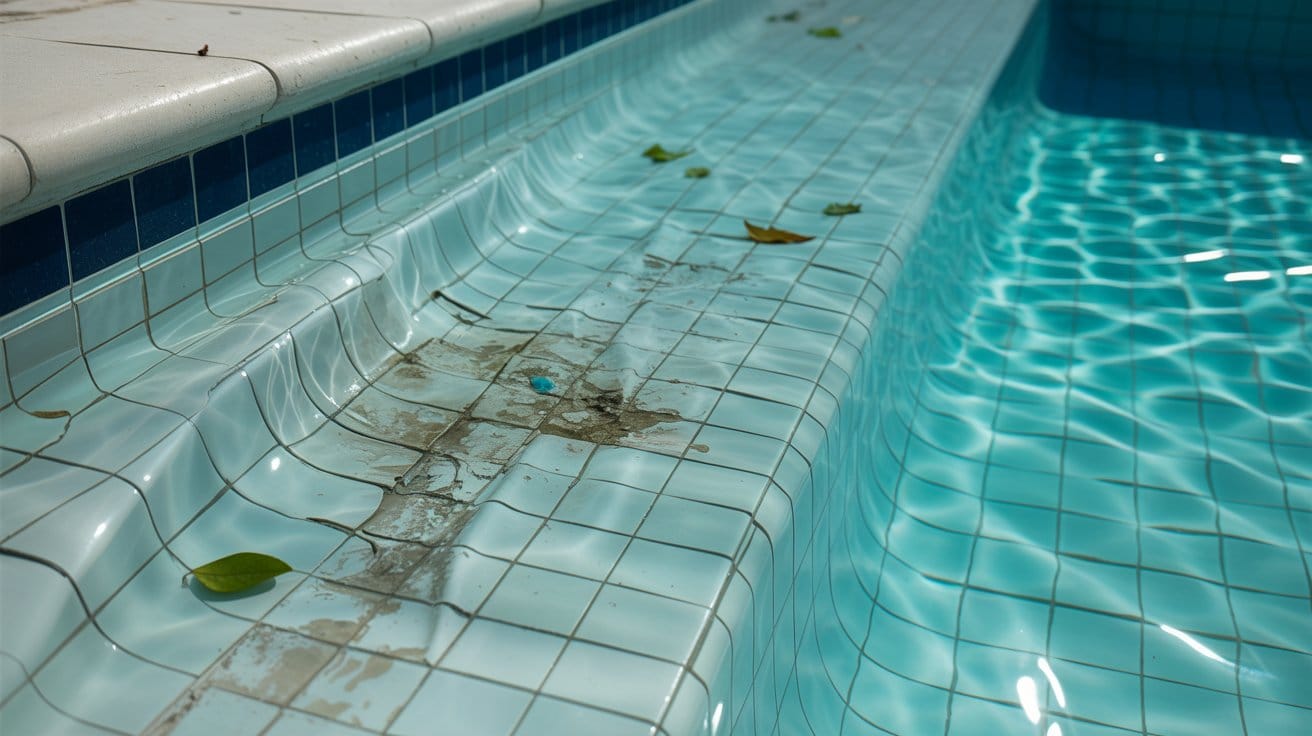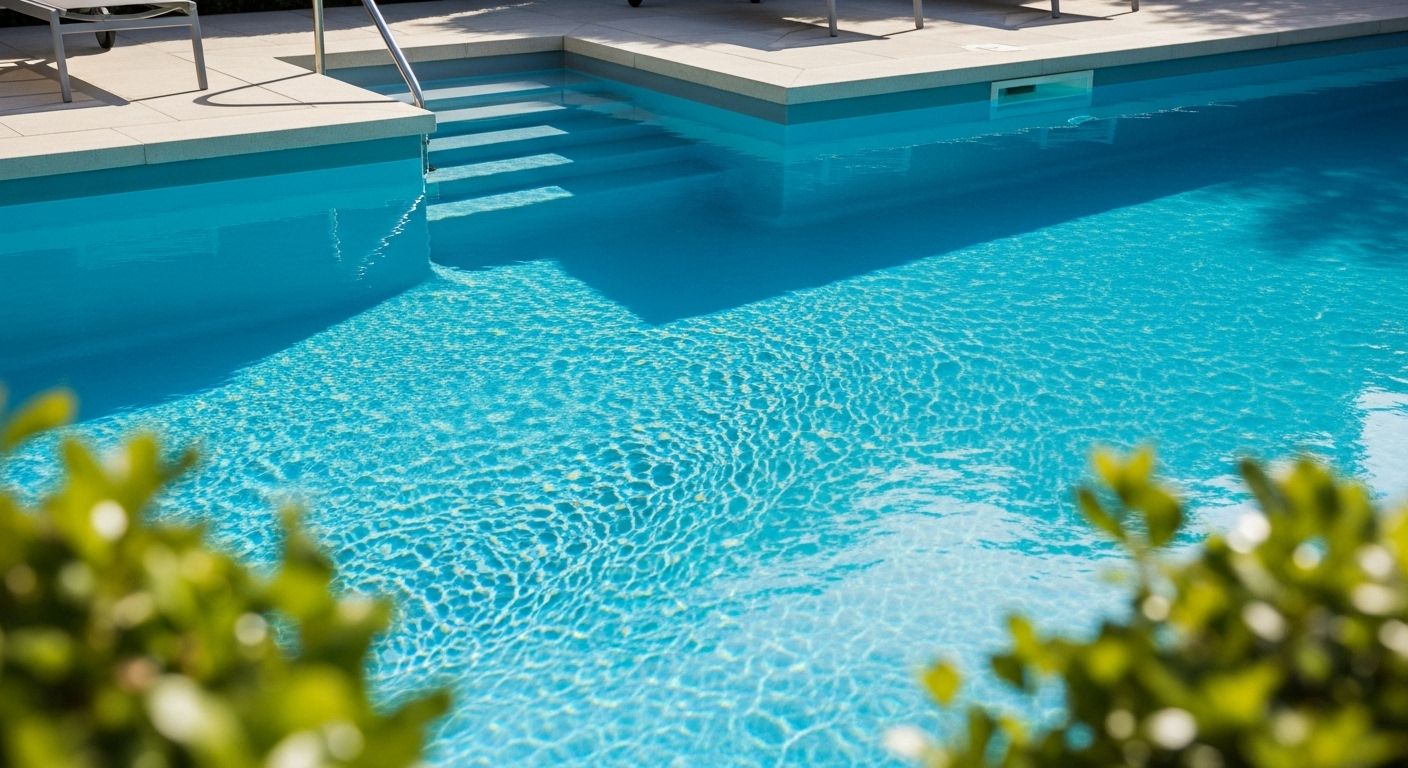5 Pool Leak Warning Signs Every Columbia Homeowner Should Know (Beyond Just Water Loss)
When most Columbia homeowners think about pool leaks, they picture the obvious scenario: a rapidly dropping water level that forces them to constantly refill their pool.
When most Columbia homeowners think about pool leaks, they picture the obvious scenario: a rapidly dropping water level that forces them to constantly refill their pool. However, experienced pool leak detection professionals know that the most costly leaks often announce themselves through subtle warning signs long before they become visually obvious.
As Ray Sanders and the team at The Leak Geeks have discovered over decades of serving the Columbia area, these hidden indicators can save homeowners thousands of dollars when recognized early. Here are the five critical warning signs that every pool owner in our region should monitor – signs that often go unnoticed until small problems become expensive emergencies.
1. Unexplained Chemical Imbalances and Increased Chemical Usage
The Warning Sign: Your pool chemistry seems impossible to balance, requiring increasingly frequent chemical additions despite following your usual maintenance routine.
What’s Really Happening: When your pool has a leak, it’s constantly losing treated water and gaining fresh, untreated water (often from underground sources or your automatic fill system). This creates a perpetual chemical imbalance that manifests in several ways:
- Chlorine levels that plummet faster than normal, requiring more frequent shocking
- pH levels that swing wildly despite regular adjustments
- Alkalinity that refuses to stabilize, leading to scaling or corrosion issues
- Increased algae growth even with proper sanitization
Why Columbia Homeowners Miss This: In South Carolina’s warm, humid climate, pool owners often attribute chemical challenges to weather conditions, heavy swimmer loads, or seasonal factors. However, if you’re suddenly using 25-50% more chemicals than usual, you likely have a leak that’s diluting your pool’s treated water.
The Financial Impact: Beyond the obvious cost of extra chemicals, chemical imbalances accelerate equipment wear, damage pool surfaces, and can create unsafe swimming conditions.
2. Air Bubbles Streaming from Return Jets
The Warning Sign: You notice streams of air bubbles shooting into your pool from the return jets, especially when the pump first starts up.
What’s Really Happening: Air bubbles in your return lines almost always indicate that air is being drawn into the system on the suction side – the plumbing between your skimmer/main drain and the pump. This happens when:
- Underground suction-side pipes have developed small cracks
- Skimmer connections have loosened or degraded
- Pump seals or union connections are failing
Why It’s Often Ignored: Many homeowners dismiss small bubbles as normal, especially after equipment maintenance or pool opening. However, persistent bubbles indicate that water is escaping your system somewhere, even if you can’t see it.
The Columbia Connection: Our area’s red clay soil experiences significant expansion and contraction cycles, particularly during summer heat and winter freezes. This ground movement commonly stresses underground pool plumbing, creating the hairline cracks that cause both air infiltration and water loss.
The Risk: Air entering your pump can cause cavitation, leading to premature pump failure and costly equipment replacement.
3. Soft, Muddy, or Unusually Green Spots in Your Yard
The Warning Sign: Areas of your lawn around the pool stay consistently wet, soft, or muddy, even during dry periods. You might also notice patches of grass that are unusually green or growing faster than surrounding areas.
What’s Really Happening: Underground pool leaks create subsurface water movement that can surface far from your pool – sometimes 20-30 feet away from the actual leak location. This escaping water:
- Saturates soil, creating perpetually soft or muddy areas
- Provides extra water to grass and landscaping, causing uneven growth patterns
- Can cause erosion that leads to settling around your pool deck or house foundation
Columbia’s Unique Challenge: Our region’s clay-heavy soil doesn’t drain well, meaning leaked pool water tends to perch near the surface rather than dissipating quickly. This creates the persistent wet spots that many homeowners mistake for irrigation issues or natural springs.
Long-term Consequences: Unaddressed underground leaks can undermine pool structural integrity, damage foundations, and even threaten your home’s stability as saturated soil shifts and settles.
4. Sudden Spikes in Your Water Bill
The Warning Sign: Your monthly water bill increases significantly without corresponding changes in household usage, irrigation, or pool filling activities.
Understanding Columbia Water Costs: According to Columbia Water’s current rate structure, residents pay a base fee plus charges for usage over 2,244 gallons per month. Even a small pool leak losing 100 gallons per day adds up to approximately 3,000 additional gallons monthly – enough to push many homeowners into higher rate tiers.
The Math That Shocks Homeowners:
- A “small” leak losing 500 gallons daily = 15,000 extra gallons per month
- At Columbia’s current rates, this could add $50-75 to your monthly water bill
- Over a year, that’s $600-900 in wasted water costs alone
Why Auto-Fill Systems Hide This Problem: If your pool has an automatic filling device, the leak might not be immediately visible in your pool’s water level. The auto-fill keeps adding water, but your bill reveals the true extent of the loss.
The Multiplier Effect: Remember that you’re not just paying for the leaked water – you’re also paying to heat that water (if you have a heater), treat it with chemicals, and potentially deal with the structural damage it causes underground.
5. Equipment Area Issues: Wet Spots, Corrosion, and Strange Noises
The Warning Sign: You notice standing water around your pool equipment, white crusty deposits on pipes, or unusual sounds from your pump system.
What These Signs Reveal:
- Standing water around equipment: Often indicates pressure-side leaks in your return plumbing or equipment connections
- White, crusty mineral deposits: These calcium buildups typically form where water has been slowly leaking and evaporating, leaving mineral residue behind
- Unusual pump noises: Gurgling, whining, or cavitation sounds often indicate air in the system due to suction-side leaks
Equipment-Specific Red Flags:
- Pump motor running hotter than normal: Could indicate low water flow due to leaks
- Filter pressure readings that don’t make sense: May suggest bypass issues caused by underground leaks
- Heater cycling on and off frequently: Often caused by low water flow from leak-related issues
Why Professional Detection Matters: Equipment area leaks are often the tip of the iceberg. What appears to be a simple valve or union leak frequently connects to larger underground plumbing issues that require acoustic detection to locate precisely.
When to Call The Leak Geeks
If you’ve identified one or more of these warning signs, don’t wait for the obvious water loss that confirms a major leak problem. Early detection saves money in multiple ways:
- Lower repair costs: Small leaks are always cheaper to fix than large ones
- Prevented structural damage: Catching underground leaks before they undermine your pool or foundation
- Reduced water waste: Every day you wait, you’re literally watching money flow into the ground
- Equipment protection: Addressing air infiltration before it damages your pump system
The Columbia Advantage
At The Leak Geeks, our LeakTronics-certified acoustic detection technology can locate these hidden leaks without the guesswork, excavation, or deck damage that traditional methods require. We understand how South Carolina’s unique soil conditions, climate patterns, and construction methods affect pool leak development.
Most importantly: Our no-leak, no-pay guarantee means you only invest in professional detection when we can verify and locate the source of your water loss.
Take Action Today
Pool leaks never fix themselves, and the warning signs we’ve discussed typically worsen over time. If you’ve recognized any of these indicators around your Columbia-area pool, contact The Leak Geeks at (803) 606-7970 for professional detection that protects both your pool investment and your peace of mind.
Remember: The most expensive leak is the one you ignore.
The Leak Geeks serves homeowners throughout Columbia, Lexington, Irmo, Chapin, Cayce, West Columbia, and all Lake Murray communities with non-invasive pool leak detection services. Our advanced acoustic technology and no-pay guarantee ensure you get answers without risk to your property or wallet.
Explore Our Latest Blogs

The 5 Most Common Causes of Pool Leaks – and How to Prevent Them
Discover the five most common causes of pool leaks - cracks in the shell, faulty plumbing, equipment issues, damaged liners, and worn fittings - and learn expert prevention tips from The Leak Geeks.

5 Pool Leak Warning Signs Every Columbia Homeowner Should Know (Beyond Just Water Loss)
When most Columbia homeowners think about pool leaks, they picture the obvious scenario: a rapidly dropping water level that forces them to constantly refill their pool.

Welcome to The Leak Geeks: Columbia’s Premier Pool Leak Detection Experts
The warm South Carolina sun is perfect for poolside relaxation, but when your pool starts losing water faster than it should, that paradise can quickly turn into a costly nightmare.
Stop the Leak—Save the Deck
Book your non-invasive detection today!
